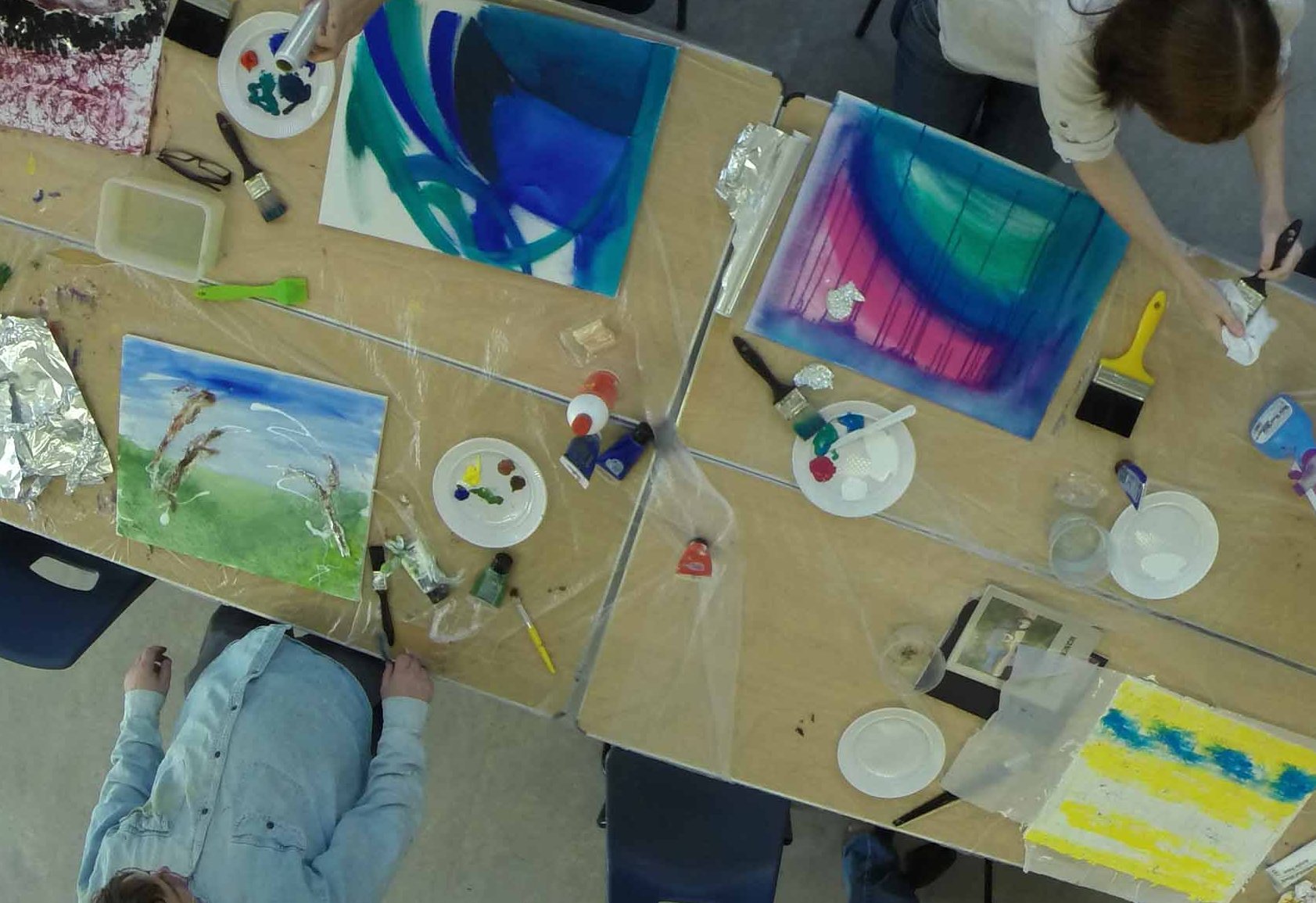
Photo: Toby Peters
Life-saving courses
Jane Rich reveals how Cambridge Community Arts creates unexpected joy through its creative courses that leave mental health at the door.
At Cambridge Community Arts, where adults who have experience of mental ill-health come to take creative courses, we are used to hearing: “this has been a life-saver”. We are regularly told that our courses have “kick-started me back into life” and my personal favourite: “It gave me unexpected joy – which is rare.”
As we approach our second birthday, we have helped more than one hundred adults to increase their confidence and engage with others, through our creative courses based in community centres.
Five of our learners are now active volunteers on the next step of their recovery journey. Several groups continue to meet weekly being creative together and many have forged friendships.
Being a step away from health services establishes a different type of relationship and allows our learners to see themselves as the artists
So how do we do it and what works well?
First, we put our learners at the centre of our work. Their welfare is of upmost importance. They need to feel safe, secure and treated with respect. Building and maintaining a trusting relationship with us as an organisation is important.
We communicate by text weekly because we’ve been told that this can make the difference between staying under the sheets or facing the day. We’ve invested a lot of time building in learner feedback at all stages of our courses and have an appointed learner representative who sits on our community advisory panel and has direct input on planning, policies and procedures.
Second, while we understand the challenges that mental ill-health can bring (working closely with mental health professionals), we leave the mental health at the door. There is a subtle but intentional difference between working in the mental health sector and targeting people who have experience of mental health challenges.
We are a community arts organisation and our focus is always on the artistic process. Being a step away from health services establishes a different type of relationship and allows our learners to see themselves as the artists, musicians or poets that they are – and start to believe it.
Our courses are not skills-driven but aim to empower learners by putting them in touch with their own creativity. Currently, we run a mixed programme of short introductory courses and longer accredited courses in partnership with Cambridge Regional College, leading to a Level 2 qualification.
All the courses are part-time, three hours each week. The benefit of working with someone over a year is that we can really get to know them and see their progress. Short courses act as a taster and are a good way to introduce people to our work. For some people a commitment of five weeks is a lot.
Central to everything are the inspiring artists that we work with. We provide the framework but our creative associates provide the magic. We work with artists from all artforms, recognising that their creativity provides the basis of what we do. Artistic quality is really important and we have developed relationships with local arts organisations, notably Kettle’s Yard and Cambridge Junction. We recently held ‘Inspiring creativity’, a day for artists to share their skills and talents and receive some basic introductory training in mental health.
One of the major challenges we face is reaching the people who would most benefit from our work. There are good networks of organisations working with the same target group and we have developed strong relationships with them and mental health professionals so that they signpost and often actually bring people along.
Measuring our impact and our outcomes remains a challenge. We use the Warwick & Edinburgh Mental Wellbeing scale as a tool for measurement and it shows a statistically significant positive impact on mental wellbeing for our learners. However, it is difficult to assign this purely to our work and we find that video case studies are a stronger way to capture our outcomes.
I often say that we do not provide therapy but our work is therapeutic. I am pleased that mental health is in the media spotlight, although that is a result of the shortfalls in services. It is great that art and creativity are acknowledged as having a role in both the prevention of and recovery from mental ill-health. I am proud to be part of a movement that is working creatively to support and enable a section of our society that at best is struggling, and at worst losing their lives.
Jane Rich is Director of Cambridge Community Arts.
www.camcommarts.org.uk
Join the Discussion
You must be logged in to post a comment.